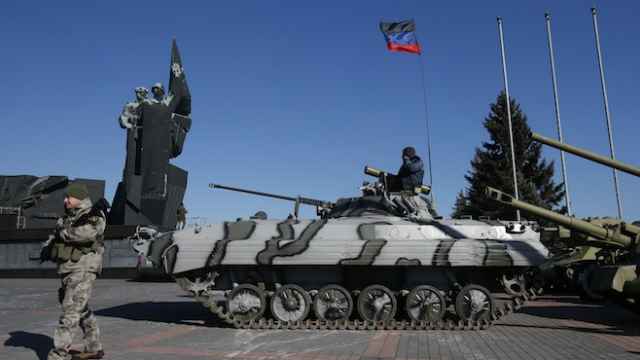As New Year's approaches, Russians are more optimistic than they have been in years, a survey by state-run pollster the Public Opinion Foundation revealed on Wednesday.
Despite ongoing diplomatic spats over the Ukraine crisis, the drastic devaluation of the Russian ruble and an economy weakened by falling oil prices and Western sanctions, 41 percent of respondents in the recent survey said they were experiencing a good mood ahead of the New Year, the poll said.
When the same survey was conducted over the last five years, only 33 to 35 percent of respondents expressed optimism about the year ahead, the pollster's director Konstantin Abramov told the TASS news agency.
Another 45 percent of respondents in the latest survey said they were meeting the New Year with neither grief nor cheer, and a mere 10 percent said they had a negative forecast for 2015, the report said.
"Russians are meeting the New Year with all-time positive moods," Abramov said, adding that despite increased concerns, Russians believe 2015 will be a "lucky" year.
"Throughout 2014, we noticed an increase in good moods," Abramov said. Analysts attributed the optimism to Russia's hosting of the Winter Olympics in Sochi, as well as the country's annexation of Crimea in March, he added.
Most respondents positively assessed their families' experiences in 2014, with 59 percent saying they considered it to have been a good one for themselves and their families and only 33 percent giving the year negative marks.
As for the year of 2014 for Russia as a whole, however, 52 percent said it had been a difficult one, and only 3 percent described it as a "very good" year.
The survey, which had a margin of error not exceeding 3.5 percent, was conducted among 1,600 people in 46 regions from Dec. 13-14 — just days before the Russian ruble hit its lowest levels since the financial collapse of 1998.
A Message from The Moscow Times:
Dear readers,
We are facing unprecedented challenges. Russia's Prosecutor General's Office has designated The Moscow Times as an "undesirable" organization, criminalizing our work and putting our staff at risk of prosecution. This follows our earlier unjust labeling as a "foreign agent."
These actions are direct attempts to silence independent journalism in Russia. The authorities claim our work "discredits the decisions of the Russian leadership." We see things differently: we strive to provide accurate, unbiased reporting on Russia.
We, the journalists of The Moscow Times, refuse to be silenced. But to continue our work, we need your help.
Your support, no matter how small, makes a world of difference. If you can, please support us monthly starting from just $2. It's quick to set up, and every contribution makes a significant impact.
By supporting The Moscow Times, you're defending open, independent journalism in the face of repression. Thank you for standing with us.
Remind me later.






